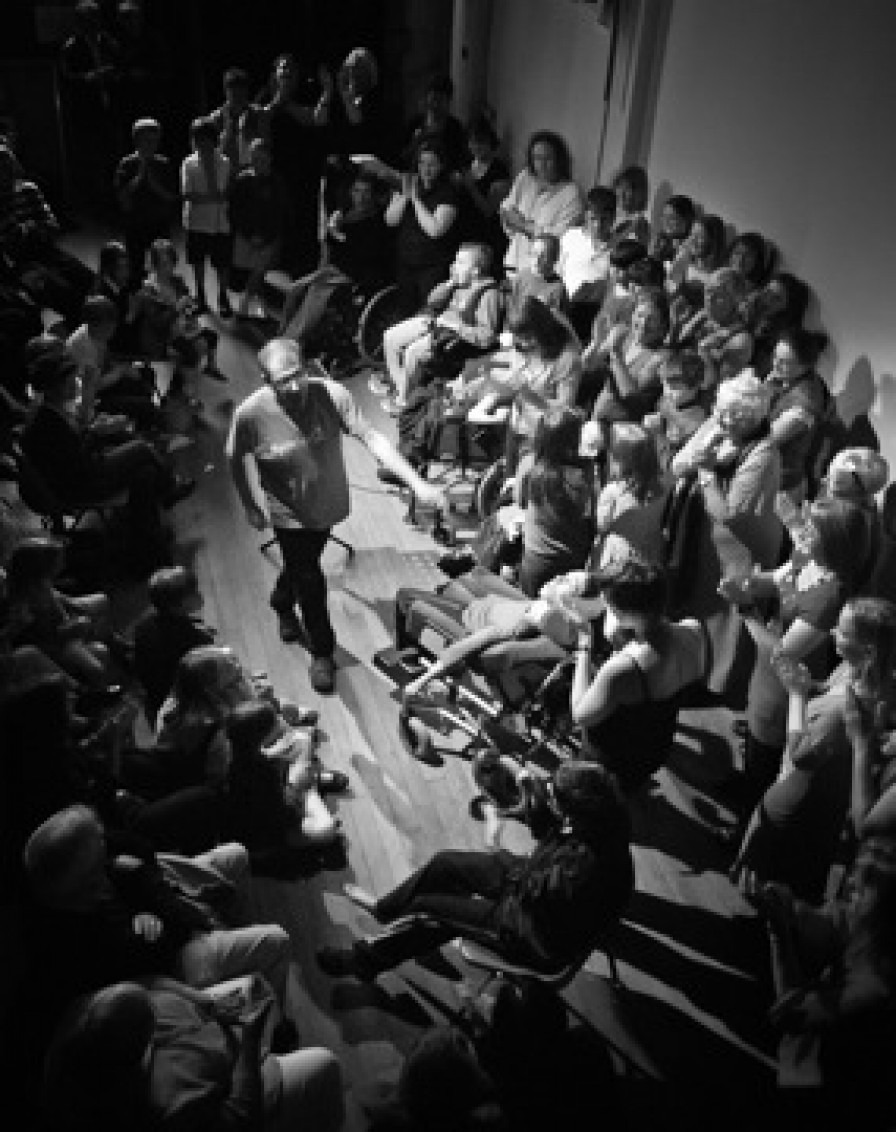Vocal workshops with non-verbal PMLD students

More Music projects within the SEND sector have developed many forms of practice and the work with PMLD students has over the past 5 years become an aspect that we all enjoy and find both rewarding and powerful. This is an interview with lead practitioner Steve Lewis.
Part of my background as a vocalist is the world of free improv. I'm a great admirer of both Maggie Nicols & Phil Minton, the mum and dad of the genre. I remember walking into a session at Beaumont College (a HE college for students with multiple and complex disabilities) early in my More Music career and hearing vocalisations that made complete musical sense to me because of my free improv ear. The sound of extended vocal technique at large if you like. I knew how to join in with the soundworlds I was hearing. So I did and the mutual impact was immediate and can be seen in the Gobsmacked video here
Later I learnt what I did intuititively had a theoretical basis in SEND as intensive interaction (Frith, Berry & Irvine 2010). From music therapy I learnt about communicative musicality (Malloch & Trevarthen 2010). This gave me the confidence that what I was doing intuitively did indeed have a theoretical underpinning. LYVE SEND is the current development of that work. A choral project that puts the voices of non-verbal PMLD students at the heart of the music. The project is still developing and this video gives just a flavour of where we're at.
The next step is to find the best way of framing the results in a way that allows us to present a performance that might interest a mainstream audience of parents, teachers and others who, like most people, have no interest in the esoterics of extended voice work. And whilst we're working on that a more contentious issue arises. Do we have the right to involve these students in a performance unless they've given their consent? If not, are they able to give that consent? What do they understand of the idea of 'performing'? And if there is doubt is it ok to go ahead anyway on the basis that we are using them as advocates to persuade people of the value of what we think they, and others like them, have to offer?

